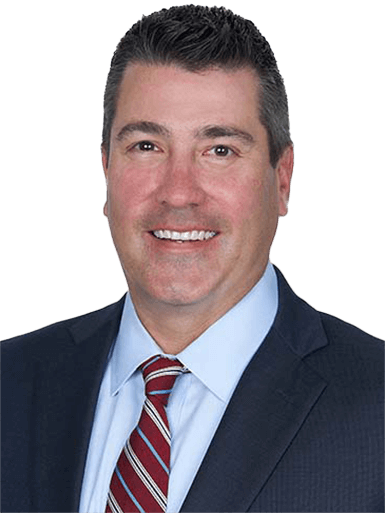Guidance for CHCs on Critical, ACO-related Budgeting, Forecasting, and Risk/Settlement Planning
Recently, healthcare providers have seen an increasing prominence of alternative payment methodologies (APMs), primarily in the form of Accountable Care Organizations (ACOs), which include risk sharing and/or incentive payment components. In Massachusetts, community health centers (CHCs) are beginning to have their first exposure to ACOs through the Medicaid 1115 waiver and the recently implemented MassHealth ACOs. Generally, CHCs have adapted to the MassHealth ACO environment and related care coordination efforts with few hiccups given the diverse needs of their patients and collaborative nature. The complexities in this new environment lie in servicing a vulnerable population in a sustainable manner, while meeting often complex reporting and outreach requirements.
Currently there are more than 15 MassHealth ACOs, each with unique provider agreements, risk sharing structures, reporting requirements, and incentives. Additionally, over the past 18 months, CHCs began receiving the first of five years of Delivery System Reform Incentive Payments (DSRIP), which provide funding for infrastructure and staffing to support the MassHealth ACO models.
Given the receding nature of annual DSRIP funding, coupled with increased provider and healthcare costs in general, the need for ACO-related budgeting, forecasting, and risk/settlement planning is critical. This is complicated by a multitude of unknowns.
What do we advise?
Despite the significant unknowns evident following this first year under the MassHealth ACO environment, AAFCPAs urges clients to begin planning now for subsequent years, establish reserves, anticipate potential downside risk, and analyze third-party payers.
Plan Now for Subsequent Years
CHCs and other provider organizations should use whatever information they have to forecast the impact that MassHealth ACOs will have. This includes their selected risk track, type of ACO, specifics within the participation agreement, in-house total cost of care calculations, benchmarks, KPIs, patient data analytics, forecasted declines in DSRIP funding, number of MassHealth patients, and financial and other information from the ACO. Even with the vast information from a variety of sources and systems available to track performance, no forecast can be perfect, and providers must start to establish reserves and set aside resources to minimize the impact of the unknown, including potential settlements. Additionally, each organization’s patient mix is unique, so defining the metrics and statistics that are meaningful may be unique for each provider. They key is paring down the overwhelming amount of data available to develop a meaningful gauge on performance.
Establish Reserves
It should be noted that setting up a reserve, or internally designating resources, is a different exercise than predicting and accruing for a potential risk-sharing settlement. Under generally accepted accounting principles, an accrual should not be recorded unless the obligation is probable and can be reasonably estimated. As MassHealth ACO year-one related figures are being finalized and interpreted, there may not yet be enough information available to record a potential settlement expense and accrual. Providers may have a range of cost sharing/savings, which can be one factor used to establish a reserve for future MassHealth ACO costs and investments.
Establishing a reserve or forecasting the impact of the MassHealth ACO on an organization should become part of the regular operating budget process as alternative payment methodologies become more prevalent. These reserves should be based on metrics or leading indicators that will give leadership a sense of how the organization is performing relative to total cost of care and other incentives within the ACO arrangement.
Anticipate Potential Downside Risk
Building ACO-related reserves into the budget will allow for a cushion for any unplanned expenses or to build surpluses to fund settlements, or other ACO commitments in subsequent periods. Furthermore, AAFCPAs advises clients to keep their budgeting process nimble and flexible as the ACO environment matures. Providers need to be able to curtail expenses associated with a fee-for-service delivery model and continue to reinvest and shift focus to a model based on total care, preventative care, and patient outcomes, as the needs of their patients evolve. This is critical to maintaining the infrastructure, outreach staffing, care coordination costs, and reporting systems going forward as DSRIP funding is reduced in subsequent years.
We recognize that this is not easy given providers are largely measured on daily productivity metrics driven by volume of encounters. While productivity measures will not completely go away, they can be used in the short term to identify excess capacity and control costs.
Analyze All Third-Party Payers
As alternative payment methodologies become more of a reality for CHCs and other providers, coupled with revamped revenue recognition guidance impacting healthcare providers, it is a good opportunity to start analyzing all third-party payers. Many concepts behind ACO forecasting, budgeting, and monitoring related agreements and contracts can be applied to other payers. It is recommended that organizations maintain a summary, or lead sheet, for all significant payers that succinctly summarizes key terms and provisions (i.e. incentives, penalties, terms, reimbursement specifics, services covered, etc.). Creation of these summaries can serve as a precursor to implementing KPIs for each major payer. Additionally, they may be used to implement a third-party payer dashboard, and will help with payer negotiations and relations.
Effective planning for the impact of ACOs should not be conducted in a silo. AAFCPAs is available to assist your organization in planning for subsequent years, establishing reserves, anticipating downside risk, and analyzing third-party payers. We can also provide strategies to minimize disruptions and negative financial and operational impact.
For advice specific to your organization, or to learn more about how AAFCPAs’ healthcare expertise may help you overcome these hurdles, please contact Charlie Webb, CPA at 774.512.4046, cwebb@nullaafcpa.com, or your AAFCPAs Partner.

